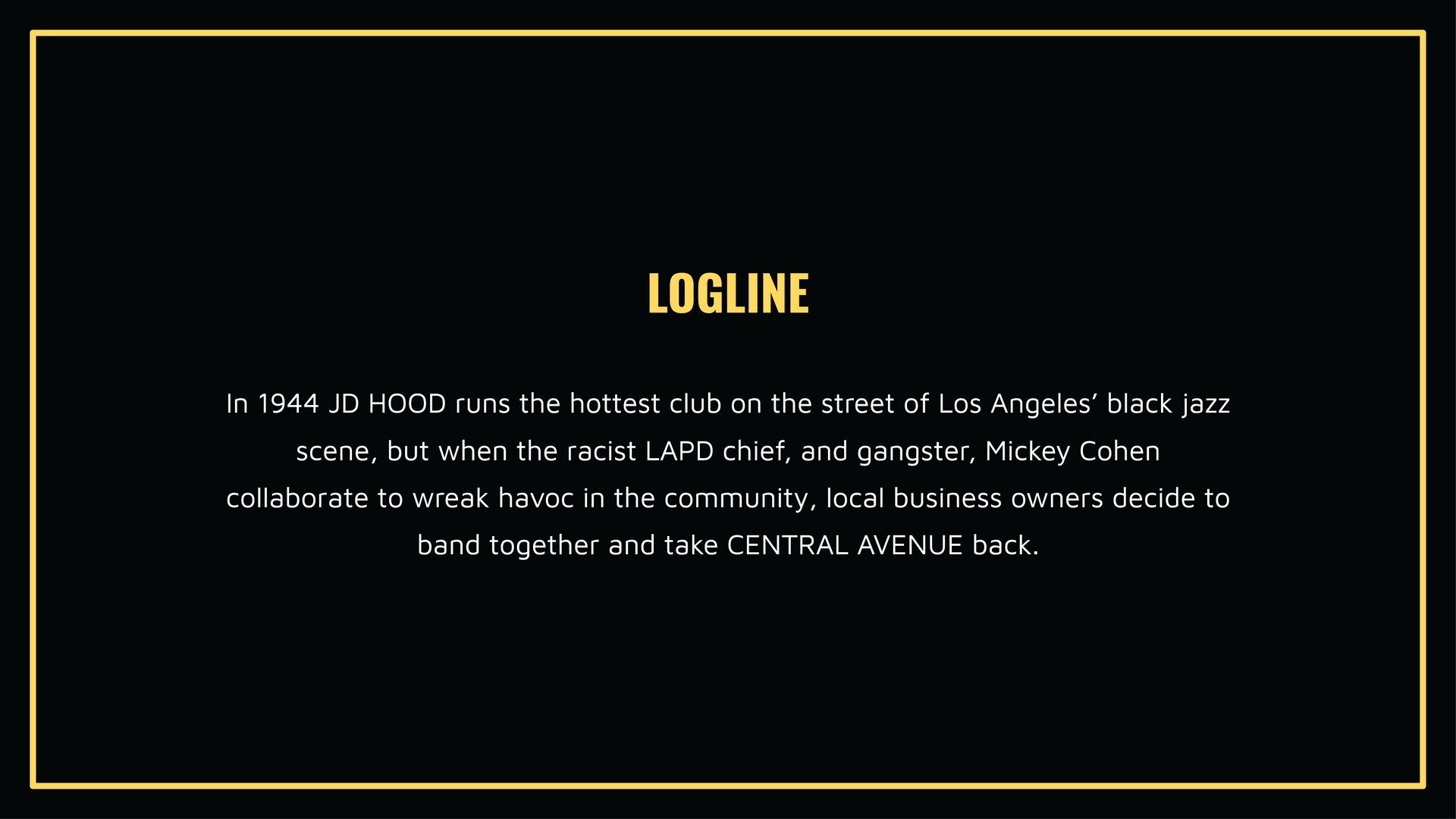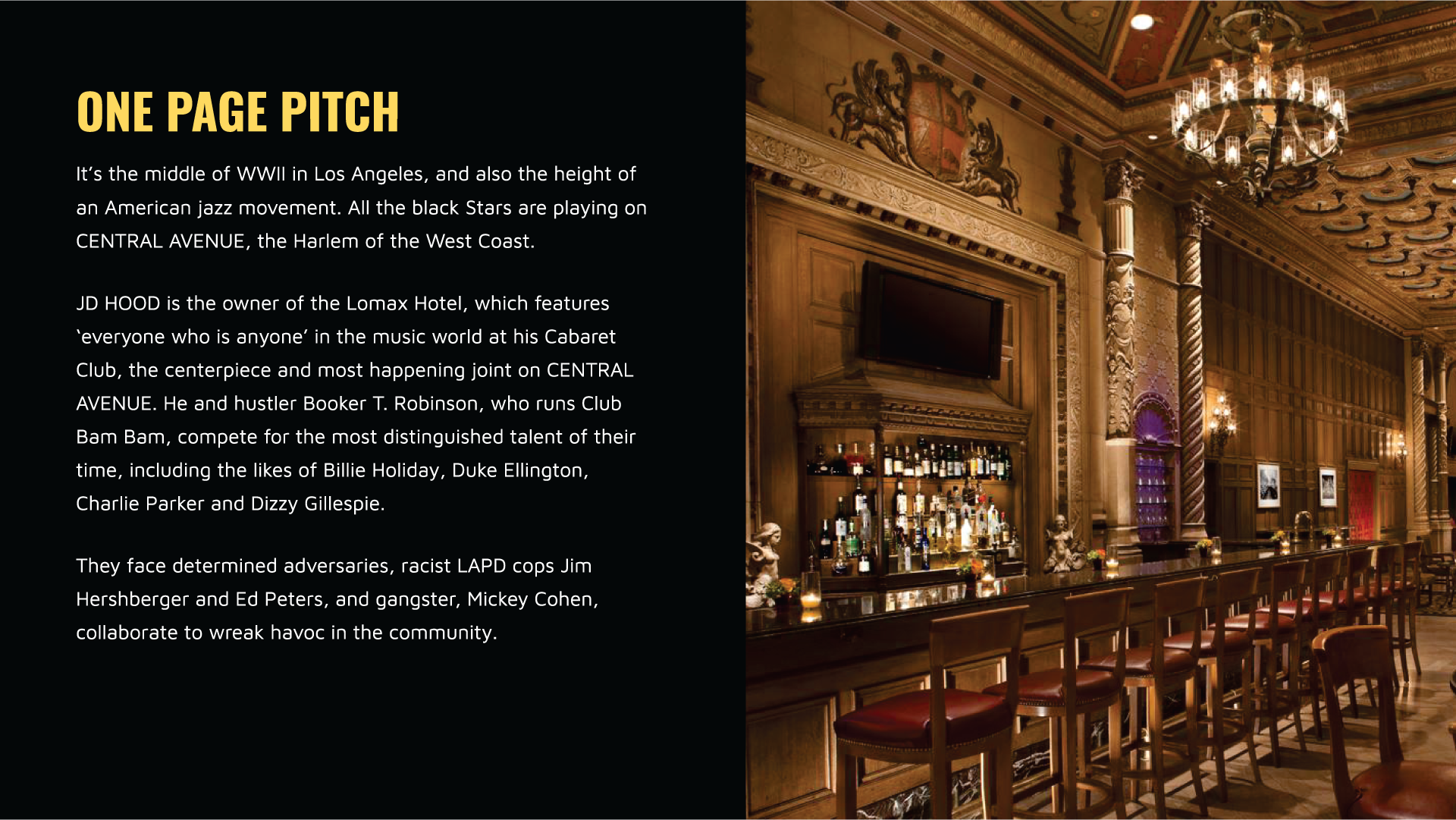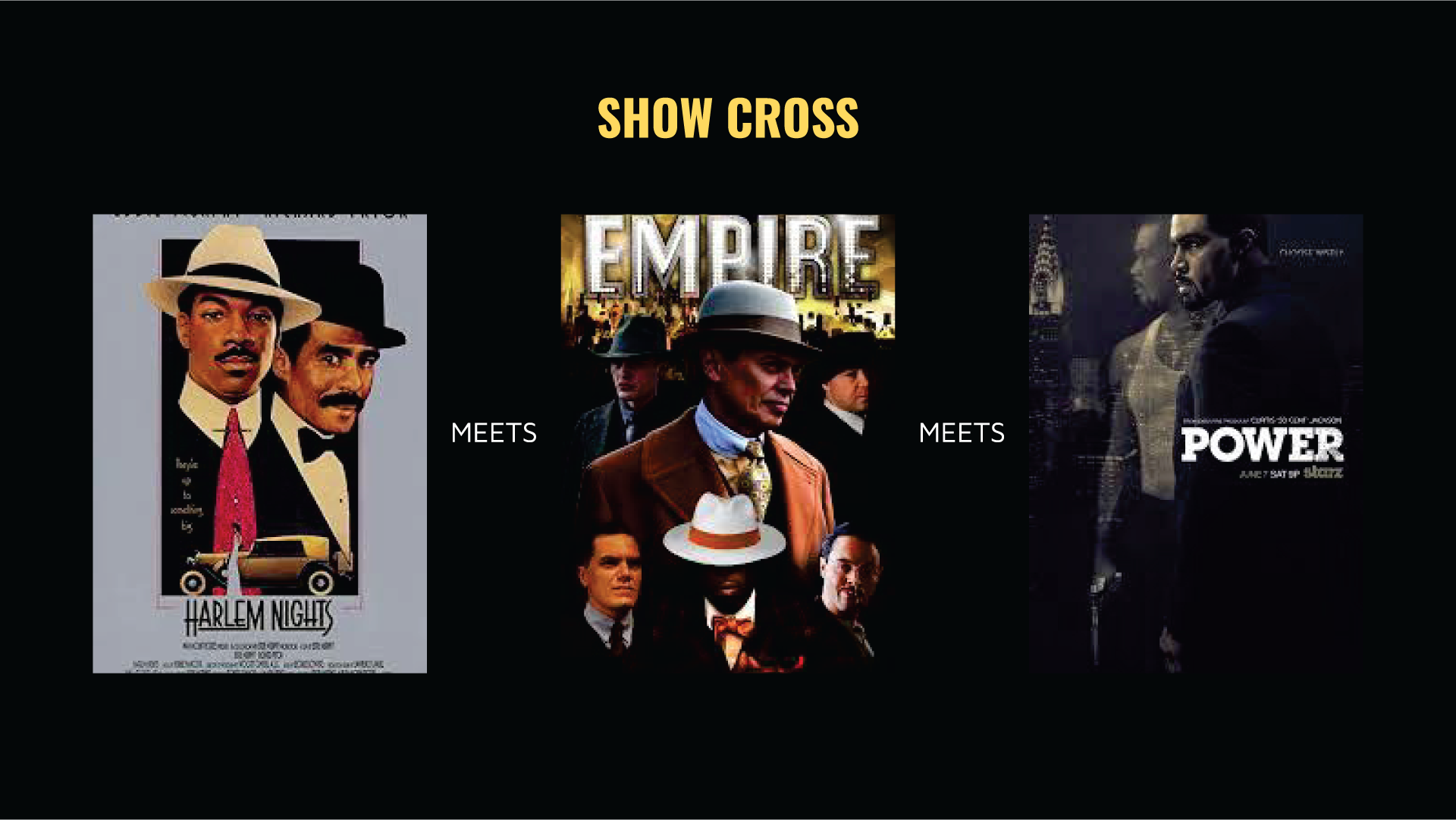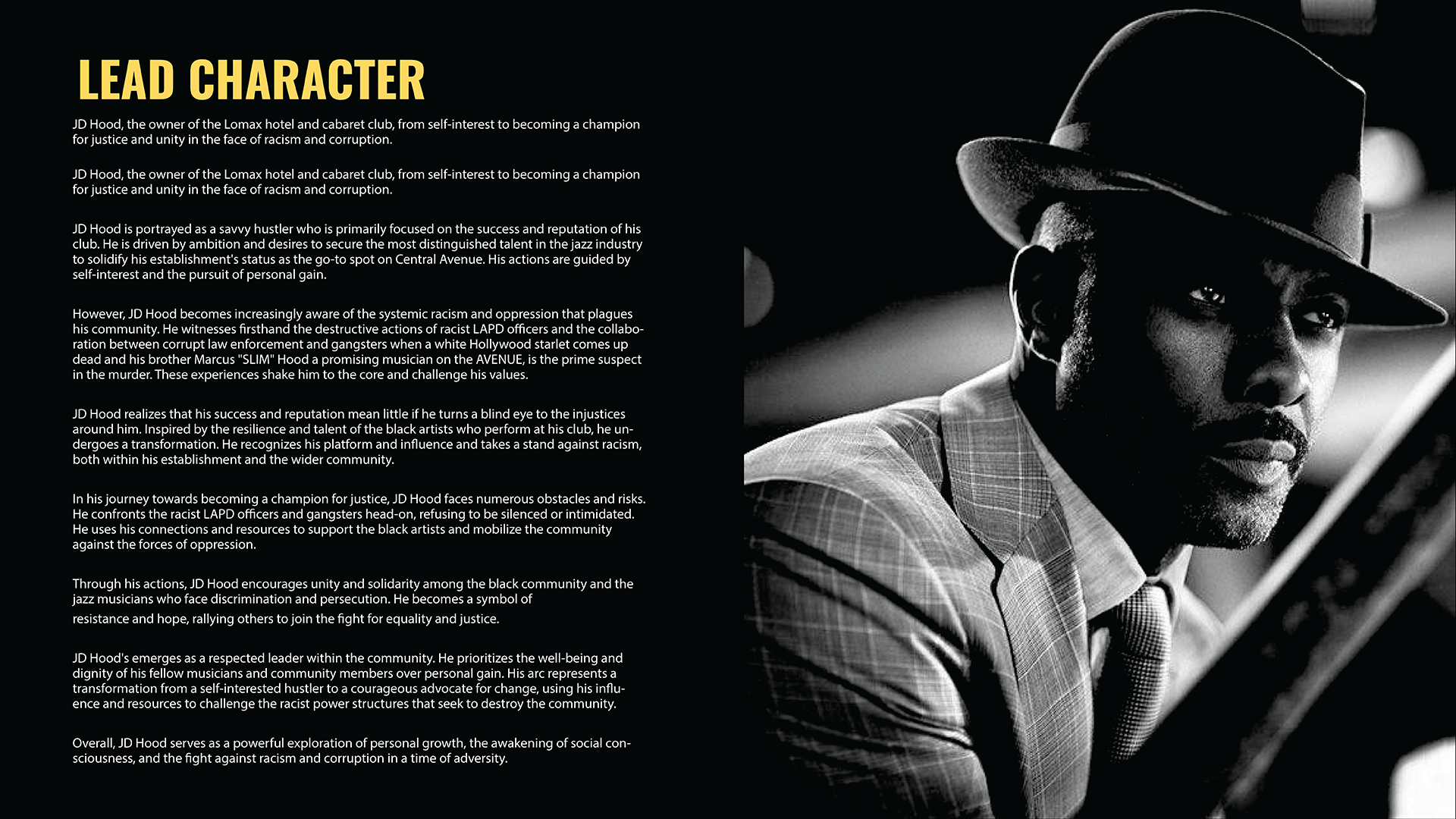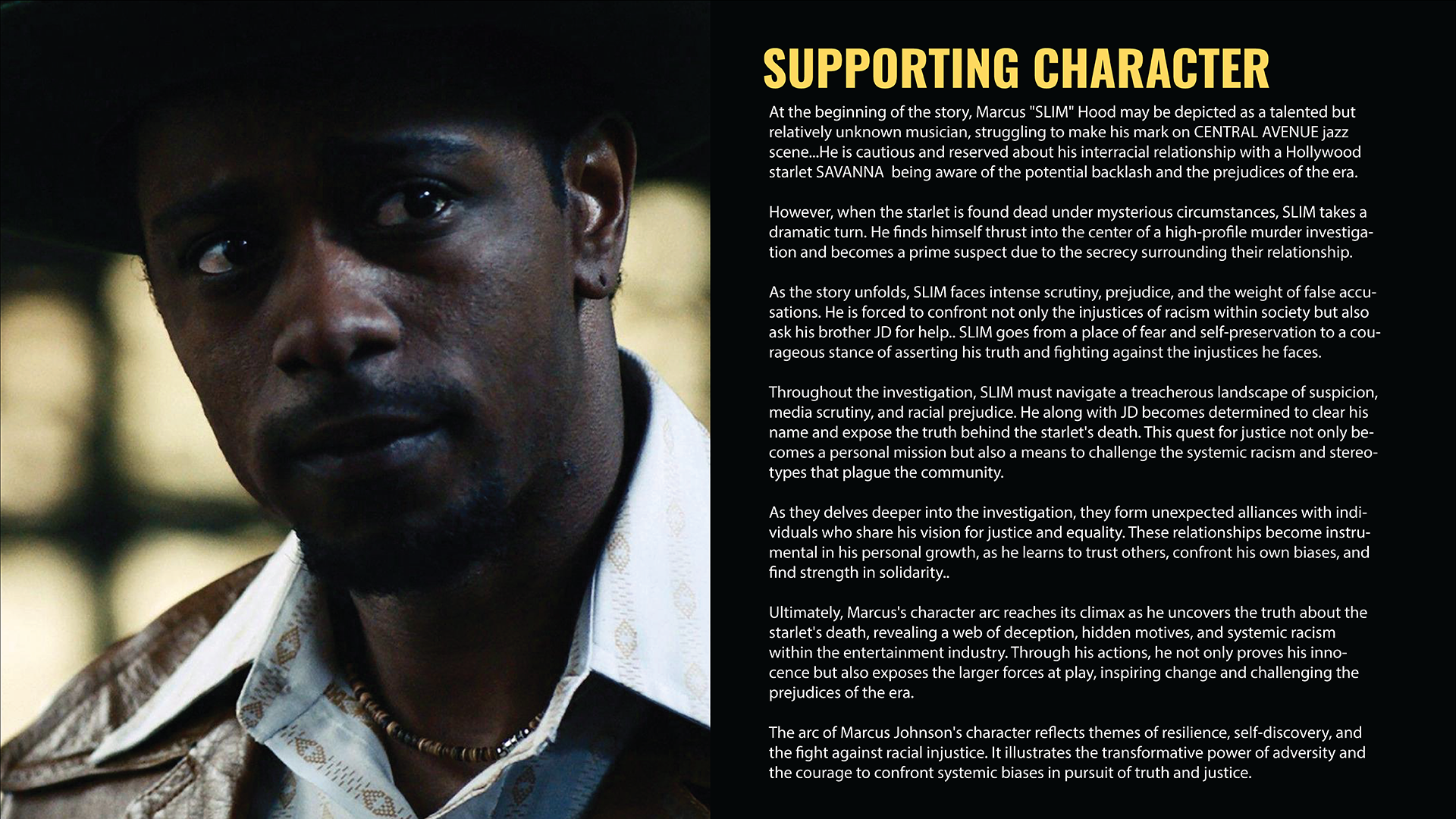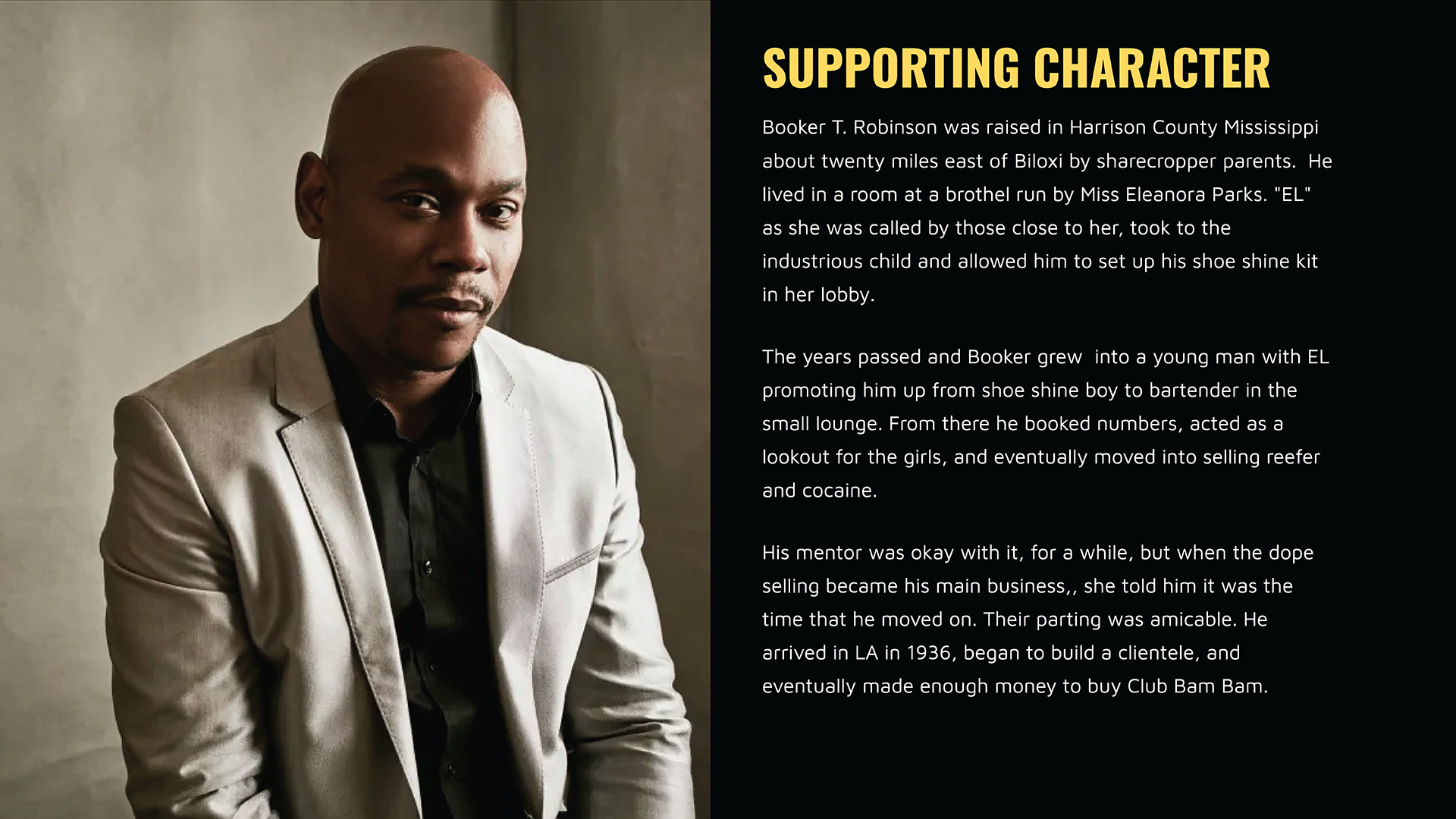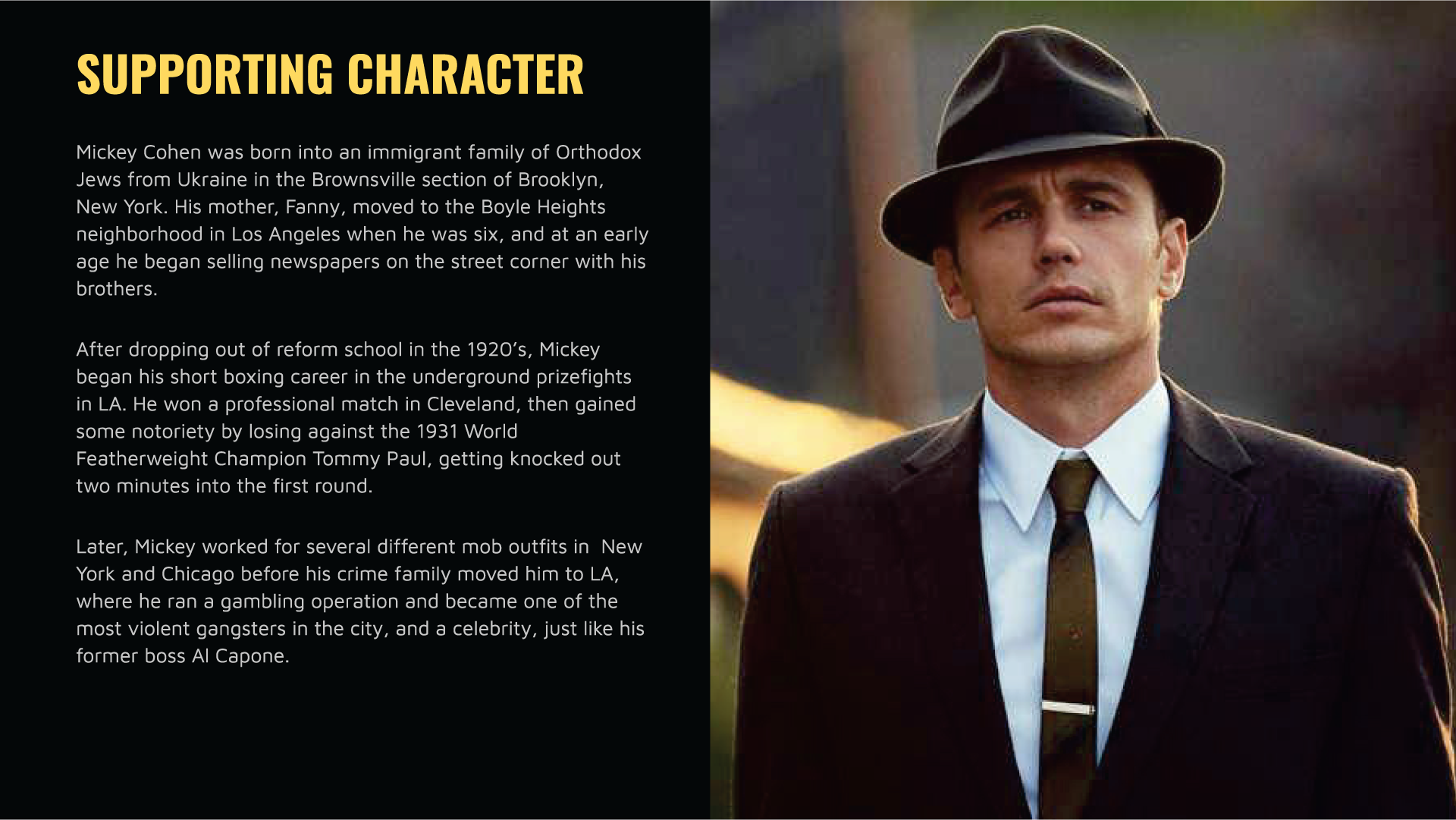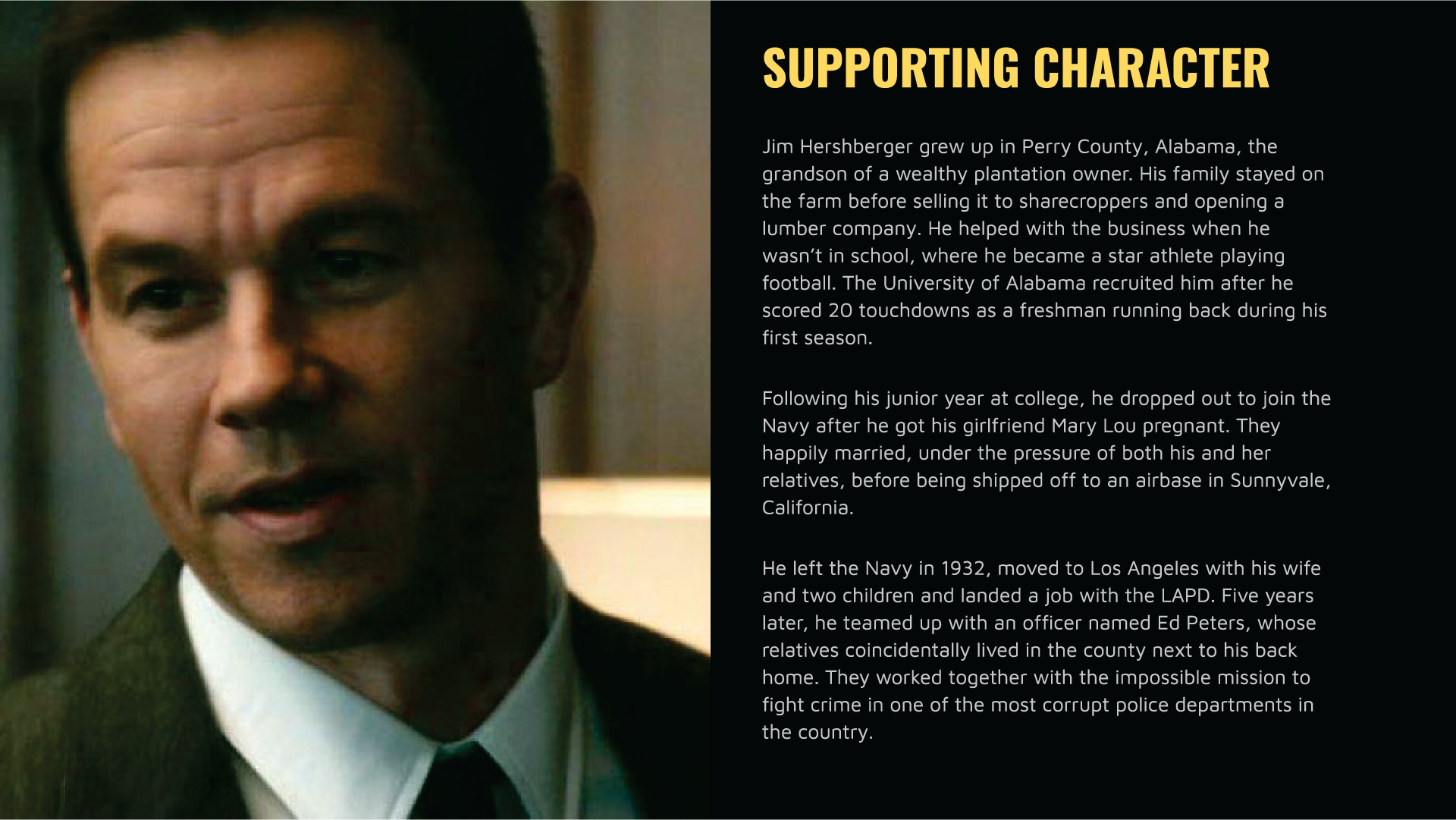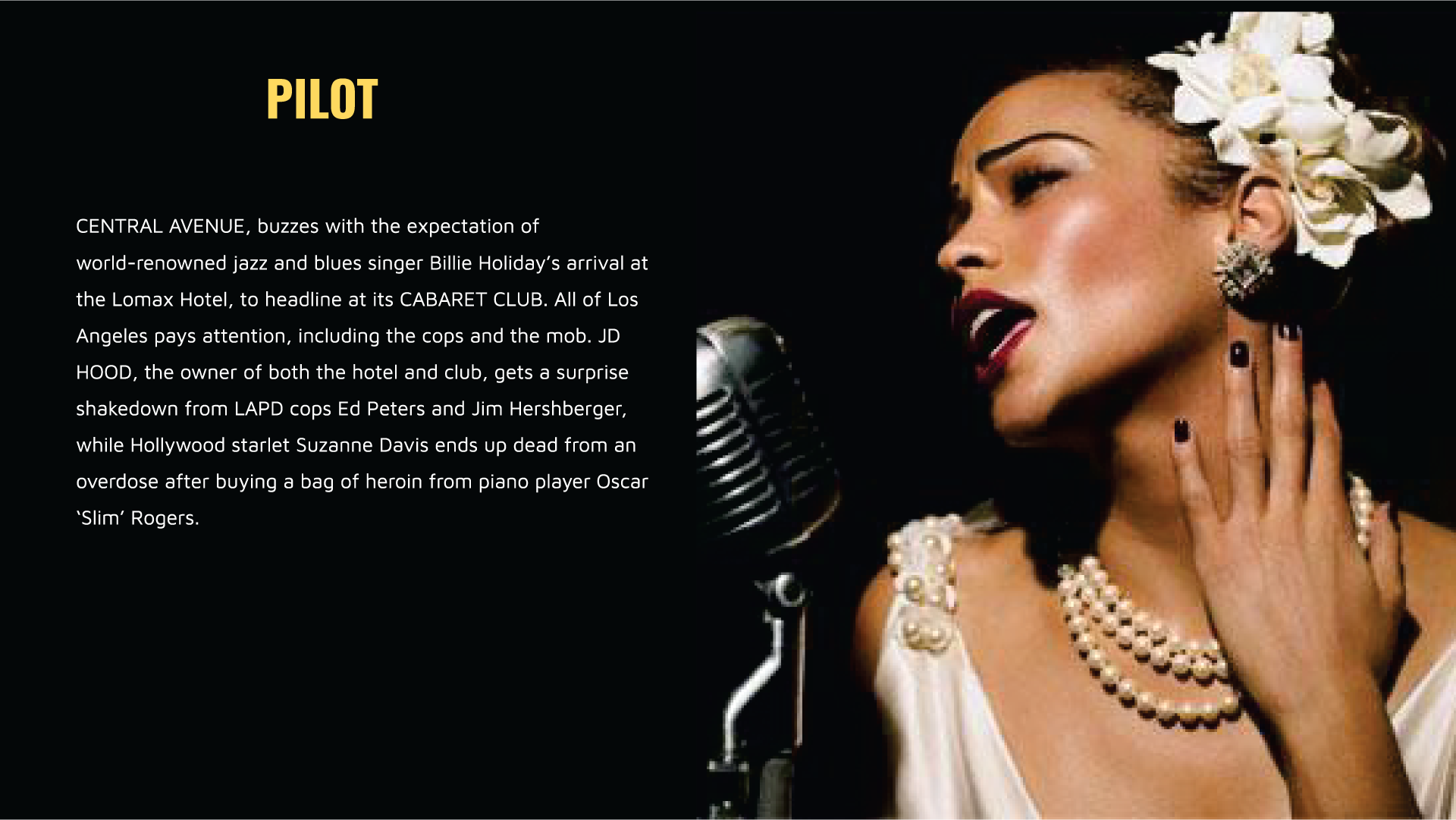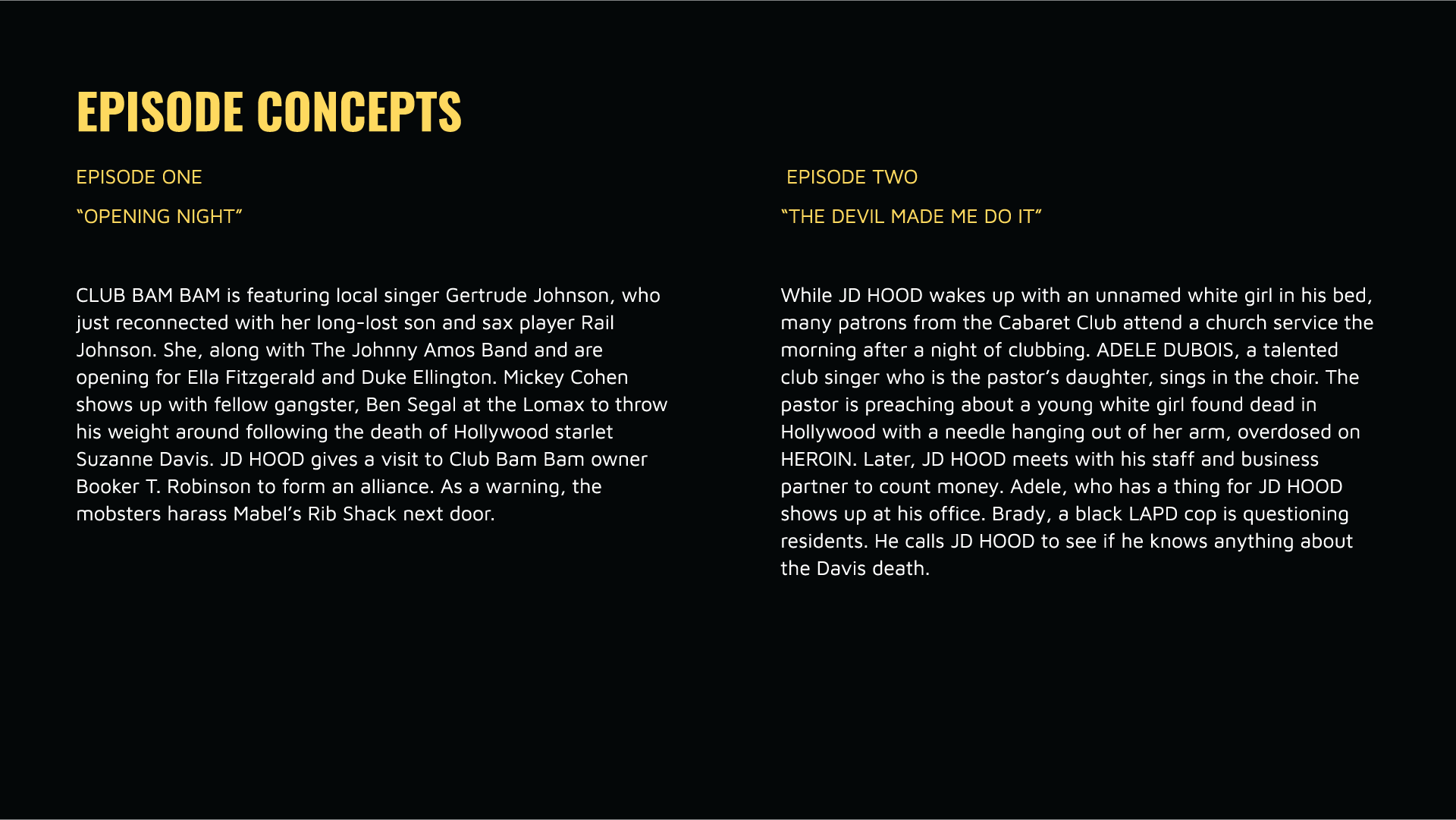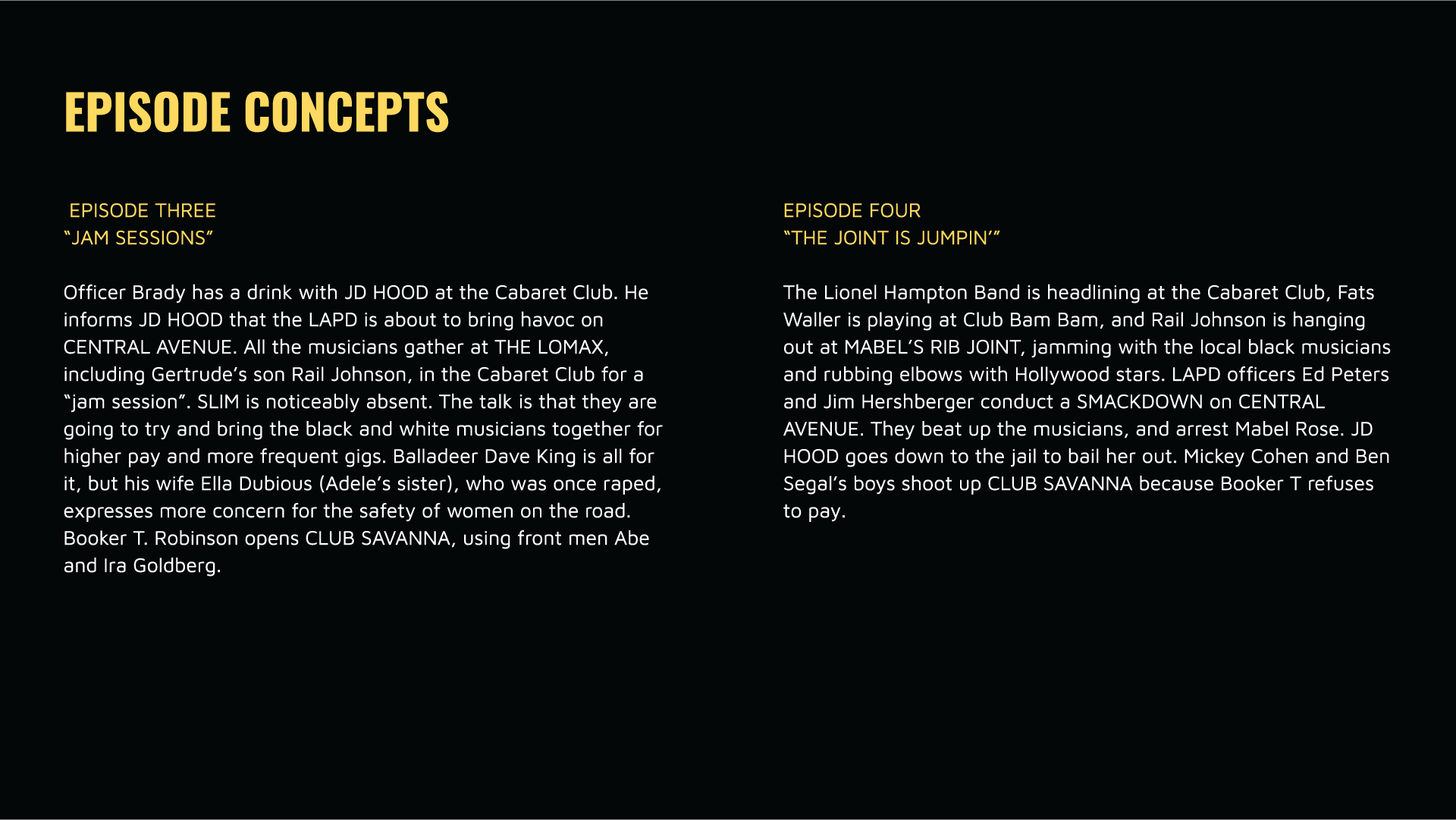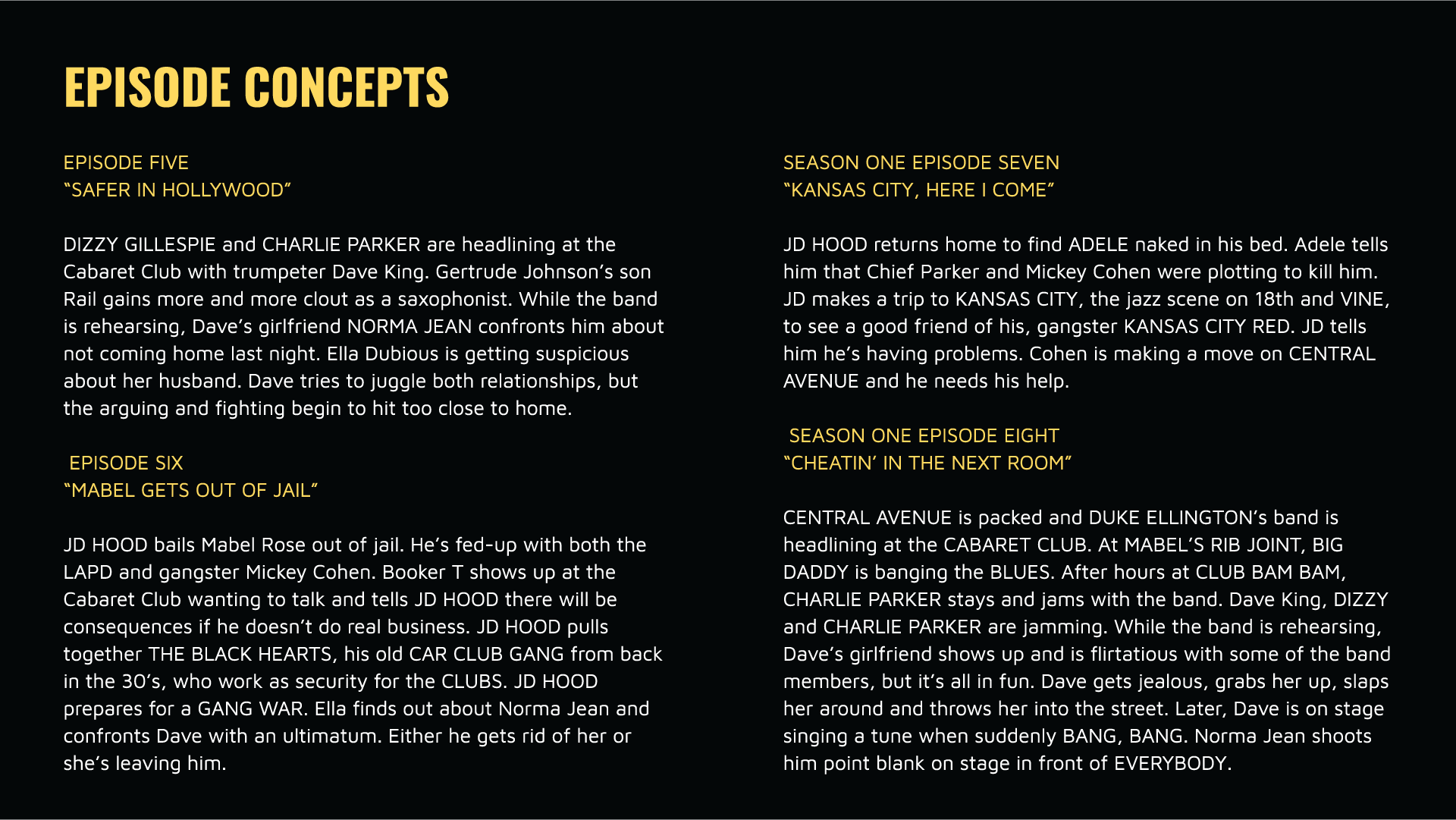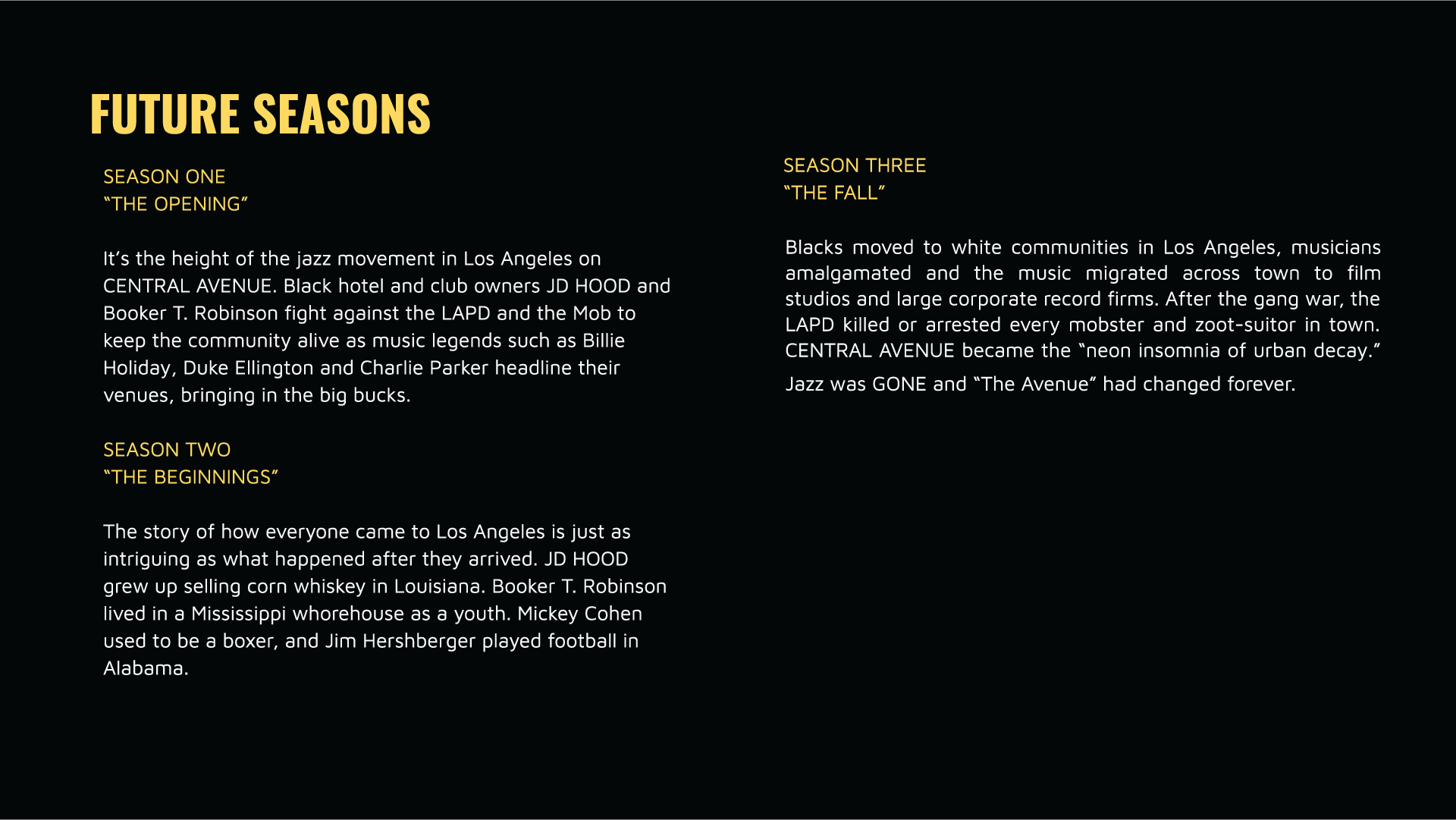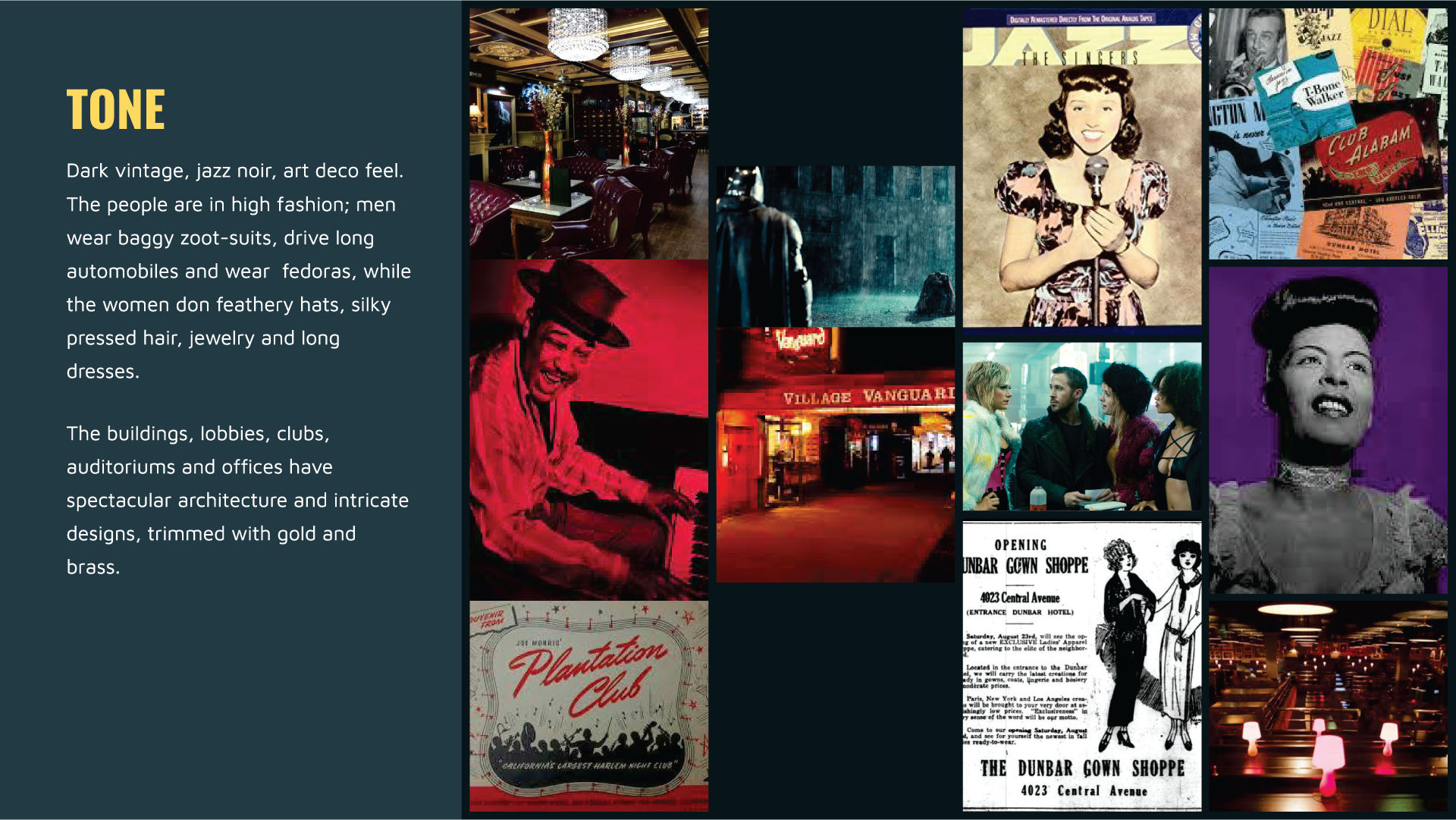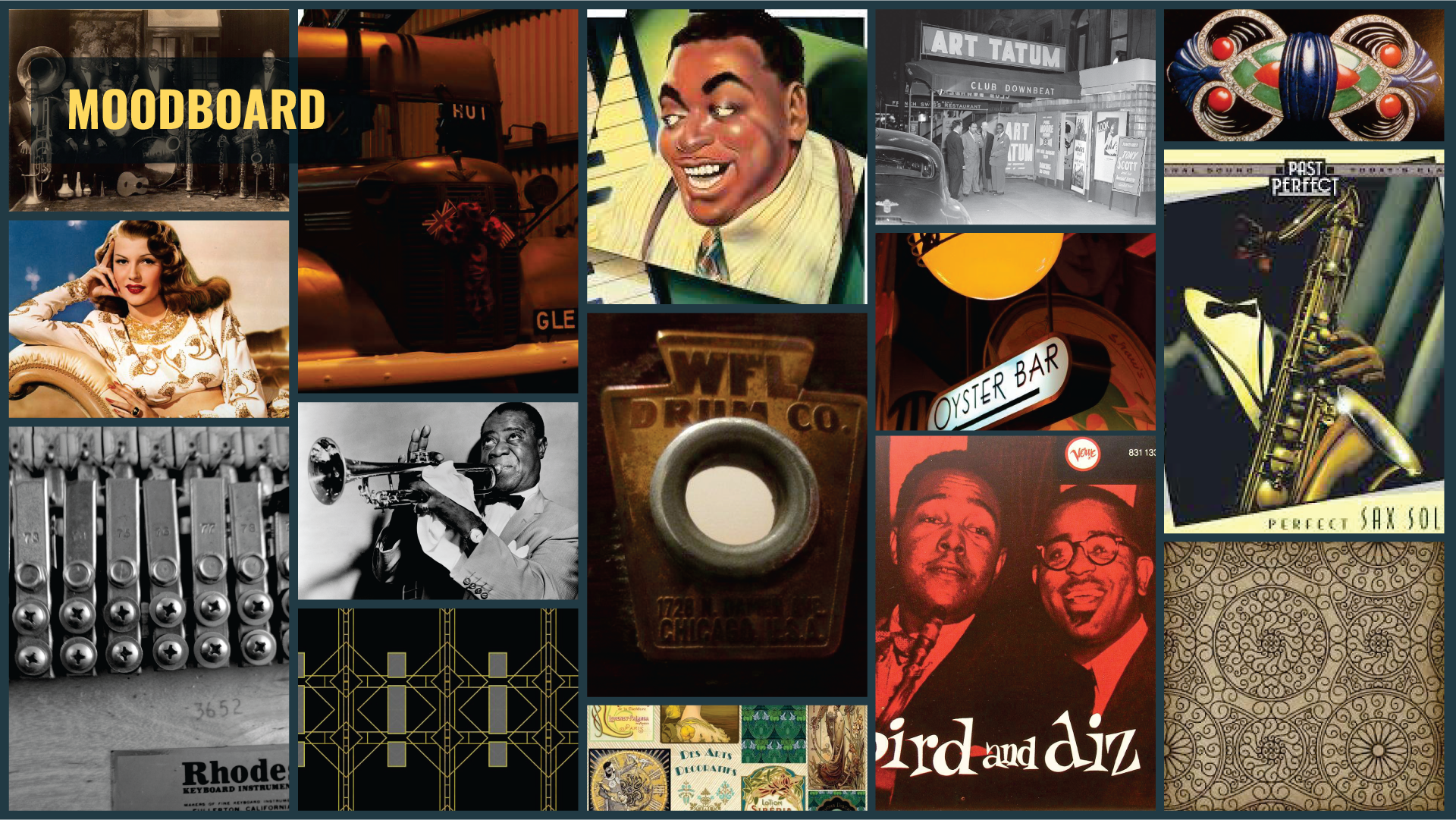Central Avenue
A TV Series
SYNOPSIS
JD Hood is a savvy hustler who is primarily focused on the success and reputation of his club. He is driven by ambition and desires to secure the most distinguished talent in the jazz industry to solidify his establishment's status as the go-to spot on Central Avenue. His actions are guided by self-interest and the pursuit of personal gain.
However, as the story unfolds, JD Hood becomes increasingly aware of the systemic racism and oppression that plagues his community. He witnesses firsthand the destructive actions of racist LAPD officers and the collaboration between corrupt law enforcement and gangsters. These experiences shake him to the core and challenge his values.
The turning point comes when JD Hood realizes that he needs to use his success and reputation to help his brother "SLIM" investigate the murder of the white Hollywood starlet. Inspired by the resilience and talent of the black artists who perform at his club, he undergoes a transformation. He recognizes his platform and influence and takes a stand against racism, both within his establishment and the wider community.
OVERVIEW
In his journey towards becoming a champion for justice, JD Hood faces numerous obstacles and risks. He confronts the racist LAPD officers and gangsters head-on, refusing to be silenced or intimidated. He uses his connections and resources to support the black artists and mobilize the community against the forces of oppression, and then a white Hollywood starlet who winds up dead while secretly dating JD Hoods younger brother, a black musician Marcus "SLIM" Hood.
SLIM is involved in the secret relationship with the white Hollywood starlet, Savanna. Marcus "SLIM" Hood is a talented but relatively unknown musician, struggling to make his mark in the "AVENUE". He is cautious and reserved about his interracial relationship with the starlet, being aware of the potential backlash and the prejudices of the era.
However, when SAVANNA is found dead under mysterious circumstances, "SLIM" takes a dramatic turn. He finds himself thrust into the center of a high-profile murder investigation and becomes a prime suspect due to the secrecy surrounding their relationship.
As the story unfolds, SLIM faces intense scrutiny, prejudice, and the weight of false accusations. He is forced to confront not only the injustices of racism within society but also turn to his brother JD for help .
Throughout the investigation, JD must navigate a treacherous landscape of suspicion, media scrutiny, and racial prejudice. He becomes determined to clear his brother"s name and expose the truth behind the starlet's death. This quest for justice not only becomes a personal mission but also a means to challenge the systemic racism and stereotypes that plague the community.
As JD delves deeper into the investigation, he forms unexpected alliances with individuals who share his vision for justice and equality on the AVENUE. These relationships become instrumental in his personal growth, as he learns to trust others, confront his own biases, and find strength in solidarity.
Ultimately JD with the help of his fellow musicians, hustlers, gangsters, and his brother slim, uncovers the truth about the starlet's death, revealing a web of deception, hidden motives, and systemic racism within the City of Los Angeles. Through his actions, he not only proves his innocence but also exposes the larger forces at play, inspiring change and challenging the prejudices of the era.
Through his actions, JD Hood encourages unity and solidarity among the black community and the jazz musicians who face discrimination and persecution. He becomes a symbol of resistance and hope, rallying others to join the fight for equality and justice.
JD Hood emerges as a respected leader on the avenue. He prioritizes the well-being and dignity of his fellow musicians and community members over personal gain. He represents a transformation from a self-interested hustler to a courageous advocate for change, using his influence and resources to challenge the racist power structures that seek to destroy the community.
Overall, JD Hood serves as a powerful exploration of personal growth, the awakening of social consciousness, and the fight against racism and corruption in a time of adversity on CENTRAL AVENUE.
SEASON
SUMMARY
Runtime:
46-68 minutes
Seasons:
3
Created By
Will Belcher
Story By
Will Belcher
Written By
JD Belcher
Anthony Belcher
Peter Allen
Writer and director known for “TAKERS” (2010) “BOOK OF SWORDS” (1996) and “NO SAVING GRACE” (1992)
Genre
Action/Crime
Production Manager
Arlonda Washington
Talent In Consideration
Producer/
Showrunner
Neema Barnette
Know for her work on "Paradise Lost(2020), Black Lighting(2019), Bosch(2019), Luke Cage(2018), & Queen Sugar(2016).
Executive Producers
Janine Sherman-Barrios(WB) IMDB
An award-winning writer showrunner known for her work on Self-Made(2020), Claws(2019), & Criminal Minds(2011-2015)
Producer
Brian Barasch
Has worked in the film industry for years in various capacities from development to international sales. Brian has written several screenplays optioned around town, including action/thriller "American Hostage" with John Moore("Good Day to Die Hard"; "Behind Enemy Lines") attached to direct.
Nutshell
Fargo (Season 4 Chris Rock) meets Devil in a Blue Dress (Denzel Washington)
Tagline
The Avenue scene may end but the Jazz never leaves.


